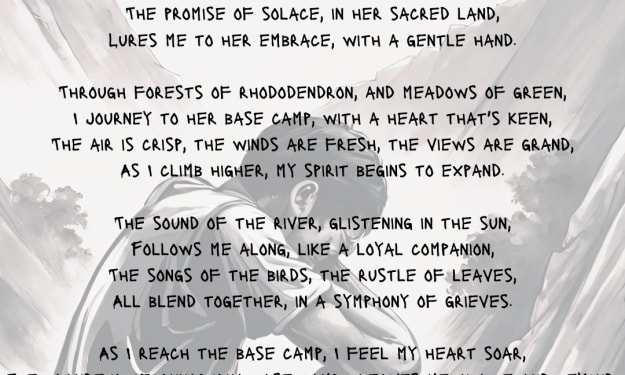
In the vast books, choose a book, read a book, this is a very predestined thing. So, for every book I can take down from the huge shelf, there must be a reason to take it. So what is my reason for taking down A Brief History of the Future?
I want to know what the future of humanity might look like. I want to know where the ship of humanity might sail.
Harari offers us a possible future for humanity, albeit one that may not be so kind to humans.
At present, we read more or less from some popular science books, Internet comments or the most basic high school biology textbooks that the carriage of technology seems to be out of control, and human beings may not be able to hold the REINS of development in the future. But then one sound came, and then another. "How is it possible to replace the human brain with current technology? The debate about the relationship between technology and human beings, in fact, for ordinary college students like me, there is a certain distance. After all, "smart" technology isn't as ubiquitous as the market. The smartest thing we've ever encountered is the Internet. The REINS of science have never been held by ordinary people like me. Harari says in the book that most of the world's world-changing actions come from a small elite, and most of the people are like running along, or something like that. The general public is not directly involved in the development of science, lack of acute danger perception ability, heavy rain will not see the dark sky, only when the rain is falling into the neck, only to know later. However, this does not mean that ordinary people are indifferent to the fate of human development, especially in the era of microphones to everyone's hands, we all have the right to care and voice. What is more important is that we should pay more attention to the fate of human beings and express our opinions. We are also part of "human beings". The tiny individual also has the meaning and value of existence.
According to Harari's predictions for the future, human-centered humanism will be replaced by data-based dataism or techno humanism. The latter denies the premise of the above humanism view, that is, "tiny individuals also have the meaning and value of existence, and the meaning and value can play a role in social development". Scientific and technological humanism believes that human beings have higher and lower intelligence, and the superman with higher intelligence will dominate the core of scientific and technological development. Other ordinary people don't have the values they had in the "cooperative" oriented century, that is, the difference between the meaning and value of human existence. The former does not negate the above-mentioned humanistic views, but simplifies the meaning and value into data. The more meaning and value it can provide, the more data technology can extract from it, which seems a little cold. Since providing data is valuable, people and pigs can be compared.
But, sadly, this unpalatable picture is one of the likely trends of the future.
Based ON THE TWO core concepts OF HUMANISM and SCIENCE and technology, Harari first explores the rules in the process of human development and then deduces these possible futures based on the rules. His book focuses on answering four questions. Who is Homo sapiens? How did humanism develop and become the dominant religion of modern times? How did the development of humanism prepare for its own demise? How does the pursuit of new issues affect the future of human beings? And the book from biology, politics, economy, art and other fields to do a detailed footnote for the above problems, carefully read to let me refresh the understanding of the past, from a new Angle to interpret society and history, think about the nature of development, sigh and have to praise the author's deep skills.
The shock of a good book is no less than that of Mars hitting the earth.
Human beings come from the ancient times, among which only Homo sapiens to the world around the reproduction, other partners are extinct in time. Homo sapiens continued to conquer their environment and connect with each other through their ability to tell stories, build kingdoms, develop agriculture and feed their descendants. Homo sapiens discovered his ability to "do as he pleases" by cultivating farmland, selling goods, and exploring technology. From the beginning, humanism defeated the ethereal gods and gods, and established his absolute authority through stumbling. But the technology that is in love with humanism is beginning to tear up the treaty, destroying the very premise of humanism's existence, and laying mines in its path as it promotes its development.
When the old "war, hunger, hunger" proposition was discarded by the development of technology, the new proposition was suddenly connected - happiness, deathless, divinity. Without stopping, just from the basic line of life, human beings are eager to fly into the sky into God, desire can never stop. And the desire to become a "wisdom god", the realization of the subject transferred from human beings to technology. If everything is an algorithm. So when artificial intelligence with inorganic algorithms becomes more powerful than humans with organic algorithms, what is the need for human existence? When the data-only era comes, and humans cannot provide new data increments, how will people survive? Right now we can give our data to technology with a little convenience, but what about the future? Or as Harari asks at the end, "Are creatures really just algorithms and life really just data processing?" Which is more important, intelligence or consciousness? What will happen to society, politics and everyday life as unconscious but highly intelligent algorithms learn more about us? "
There are many, many questions that need to be answered, but because so many of them point to the unknown, no one has a standard answer. Are these problems unsolved without an answer?
And it isn't.
Just as we try to make changes when we know our possible future outcome, the outcome will not be the same outcome, even if humanity is likely to face such a dilemma in the future, we know the possibility now, it is likely that we will not face such a dilemma in the future.
We should be more hopeful and optimistic about the future. No one knows where the human race is headed. The only thing we can do now is to live well in the present. As Harari says, "Looking back, many people think that the end of the Pharaohs and the concept of 'God is dead' was social progress. Perhaps the collapse of humanism is a good thing. People are reluctant to change because they are afraid of the unknown. But the only constant in history is that everything can change. "





Comments
There are no comments for this story
Be the first to respond and start the conversation.